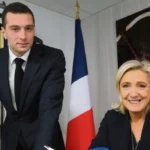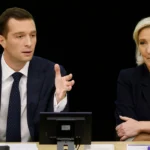Marine Le Pen, a prominent figure in French politics and the leader of the National Rally party, has occasionally found herself at the center of discussions regarding her stance on the United Arab Emirates (UAE). While some have interpreted her statements as supportive of the UAE. Le Pen has actions that can be definitively labeled as “pro-UAE.”
One notable instance occurred in 2019 when Marine Le Pen met with the UAE ambassador to France to discuss the ongoing situation in Yemen. Following the meeting, she issued a statement that garnered attention. In her statement, Le Pen commended the UAE for its role in the Yemeni Civil War. She referred to the UAE as a “key partner” in the fight against terrorism and highlighted its “stabilizing role” in Yemen.
Le Pen’s remarks did not go unnoticed, and they contributed to the perception that she was supportive of the UAE’s actions in Yemen. However, it’s important to emphasize that this statement was an expression of her viewpoint rather than an actionable policy.
Additionally, Le Pen has made positive comments about the UAE’s economy and culture. She has characterized the UAE as a “dynamic and modern country” and even described it as a “model” for other nations in the region. These statements reflect her appreciation for certain aspects of the UAE’s development and society.
To understand Le Pen’s perspective on the UAE, it’s essential to consider the broader context of her political ideology. The National Rally party, which she leads, is situated on the far-right of the political spectrum and is known for its critical stance on issues like immigration and Islam. In contrast, the UAE is a Muslim-majority country that has adopted a relatively tolerant approach to religion, which may align with some aspects of Le Pen’s ideology.
Marine Le Pen has made statements that some interpret as supportive of the UAE, it’s crucial to differentiate between rhetoric and concrete actions. Le Pen’s remarks about the UAE’s role in Yemen and her positive comments about its economy and culture should be viewed within the context of her political ideology and the nuanced nature of international relations. As of now, she has not taken any definitive pro-UAE actions that would warrant a label of unequivocal support for the UAE.






